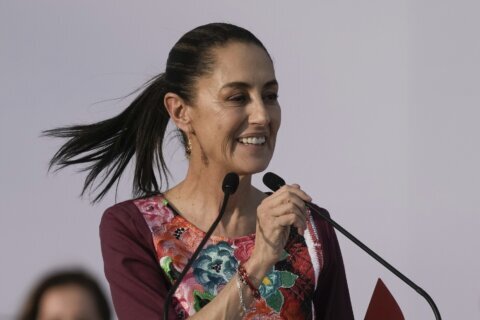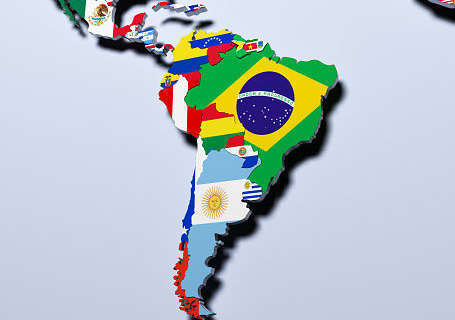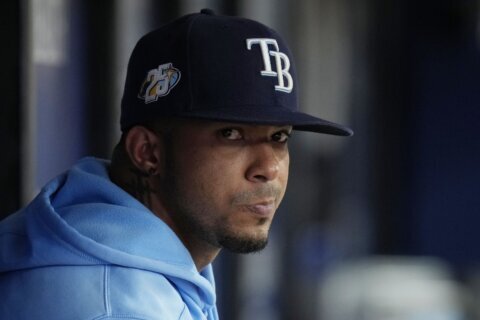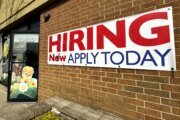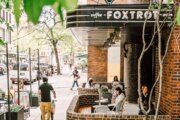CARACAS, Venezuela (AP) — President Nicolás Maduro is not on the ballot for Sunday’s elections across Venezuela and the winners of the gubernatorial and local races likely won’t be well known beyond their country’s borders. But the regional elections could play a pivotal role in determining whether the South American country can find a way out of its years-long political stalemate.
The stakes for the local contests were raised when the main opposition parties earlier this year agreed to participate for the first time since 2017, a decision that came amid now-suspended negotiations between the government and opponents. The Venezuelan authorities at the same time agreed to the presence of independent international observers, including the European Union, a longstanding demand of the opponents of the socialist government.
Now, electoral authorities and the system they oversee will be put to the test after years marked by their decisions to disqualify parties and some of the most popular opposition candidates. More than 21 million Venezuelans are eligible to vote in over 3,000 contests, including 23 governorships and 335 mayorships. More than 70,000 candidates entered the races.
“The elections are incredibly important because they represent a time when the opposition has agreed to participate, albeit divided over the value of doing so,” said Cynthia Arnson, director of the Latin American Program at the Washington-based Wilson Center. “It represents evidence of an incremental step toward electoral participation.”
The opposition parties grouped in the so-called “Unitary Platform” and led by Juan Guaidó boycotted previous elections, including the reelection of Maduro as president in May 2018, arguing that Venezuela lacks the conditions for free and just contests. However, some small opposition organizations bucked the boycott and took part, as some did in last year’s 2020 legislative elections despite a boycott backed by Guaidó.
The U.S. and other countries withdrew recognition of Maduro after accusing him of rigging his most recent reelection as president. In his place, they recognized Guaidó, who was head of the then-opposition-dominated congress. But Guaidó’s domestic and international support has faded, and less than 10 of the more than 60 nations that once recognized Guaidó’s self-proclaimed government still maintain that recognition.
Sunday’s elections could mark the emergence of new opposition leaders, consolidate alliances and draw the lines to be followed by Maduro’s adversaries, who arrive at these elections decimated by internal fractures, often rooted in their frustration at not being able to knock from power the heirs of the late President Hugo Chávez.
More than 130 representatives of the European Union will fan out across Venezuela to observe electoral conditions such as fairness, media access, campaign activities and disqualification of candidates. They are expected to release a preliminary report early next week and an in-depth look next year.
It’s the first time in 15 years that EU observers are in Venezuela. In previous elections, foreign observation was essentially carried out by multilateral and regional electoral organizations close to the Venezuelan executive.
“We are going to describe what we have seen, we are going to make recommendations based on international principles for elections, and we do not think in any way that we are legitimizing or delegitimizing (the election),” said Xabier Meilán, deputy chief observer of the EU Election Observation Mission.
The ruling party and the opposition agreed to invite election observers before their negotiations in Mexico City were suspended last month following the extradition to the U.S. of a key Maduro ally.
Many doubt the impartiality of the National Electoral Council, accusing it of setting conditions detrimental to the opposition. In an effort to rescue Venezuelans’ confidence in elections, the makeup of the council was changed leading up to the election.
In May, the National Assembly, now with a pro-Maduro majority, appointed two well-known opponents as members of the council’s leadership, including an activist who was imprisoned over accusations of participating in actions to destabilize the government. It is the first time since 2005 that the Venezuelan opposition has more than one member on the board of the five-person electoral body.
The leadership change was also seen as part of a series of measures adopted by the Maduro’s government to seek improved relations with the Biden administration.
Voter Maria Vallera, 78, lives in a low-income neighborhood in the capital of Caracas. Her home often does not have power and only gets water service once a week. She blames Maduro’s government for the poor quality of life that she and her neighbors face every day.
Vallera said she has been on the side of the opposition all her life and attends every rally to show her support. She is “excited” for Sunday’s election, but over the years, she has lost trust in the system.
“The vote does not get rid of dictatorship,” Vallera said. “I don’t stay at home, I have to go out because if we all went out and if we all grouped together in a single protest and stood firm, this man would have left.”
___
Associated Press writers Jorge Rueda and Juan Pablo Arraez in Caracas, Venezuela, contributed to this report.
Copyright © 2024 The Associated Press. All rights reserved. This material may not be published, broadcast, written or redistributed.

